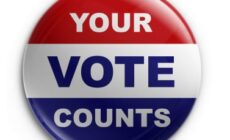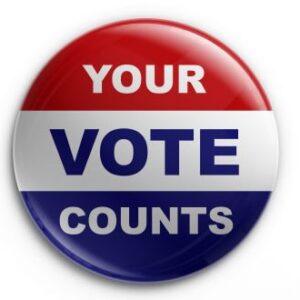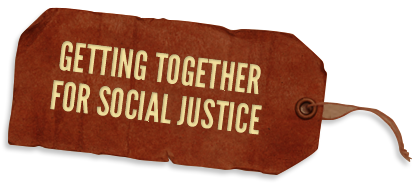Fed Judge Strikes Down FL law; Re-enfranchises 1.5 mil


Polk County, Florida Democratic Party
This month, a federal judge facilitated another win for voting rights’ advocates in the state of Florida, a state both notorious for voter disenfranchisement and famous for being a major electoral battleground. The judge struck down a stipulation that former felons have to pay all their court and legal fees before being able to vote, calling it a “pay-to-vote” system. As much as this judge’s moral fortitude is appreciated, it is important to recognize the grassroots organizers that tirelessly and craftily garnered support for voters’ rights over the past few years.
First let’s review– very briefly—the state’s voting history. (See Mother Jones ((Berman, Ari. “Unlock the Vote: Inside the Unlikely Movement That Could Restore Voting Rights To 1.4 Million Floridians.” Mother Jones, Nov/Dec 2018.)) and The Brennan Center website1 for more detailed summaries.
In 1865, at the end of the Civil War, Florida stubbornly maintained exclusive voting rights for white men, as enshrined in its constitution. That year, the “Black Codes” were enacted, providing means of criminalizing black men and thus rescinding their newly won emancipation. These laws included violations such as vagrancy, which was defined as an “able bodied person who has no visible means of living, and shall not be employed at some labor to support himself or herself, or shall be leading an idle, immoral or profligate course of life.”2 To this day, 533 infractions are qualified as felonies, including selling cannabis, tampering with an odometer or the willful molestation of a commercial harvester’s spiny lobster trap.3

Spiny lobster trap. Schroeder, William C. (1924)
In 2016, 6.1 million Americans were unable to vote due to felony charges and one fourth of them lived in Florida. 21% of Florida’s voting-age black population was barred from casting a vote. In other words, 1.5 million former felons in Florida cannot vote.4
Up until the end of 2018, Florida required that felons seeking re-enfranchisement submit a petition to the governor to restore their voting rights. This complicated and arbitrary process meant that hundreds of thousands of people were denied re-enfranchisement.5
An unlikely pair of former felon activists, Desmond Meade, a formerly incarcerated, once homeless, black lawyer and Neil Volz, a wealthy white conservative involved in a lobbying scandal—both—teamed up to pass the fourth amendment to the Florida Constitution, which would allow former felons to vote. The bipartisanship of this power team and the messaging based on compassionate morality, rather than polarized politics made for a winning strategy. They each hit up their own political circles, doing talks, events and interviews addressing their respective audiences.
From 2009 to 2018, Meade and Volz spoke to churches, organizations, journalists and crowds at community events, Volz collected votes at a Trump rally, spoke at Christian Coalition events and even a Koch Industries event. Meade organized a meeting between returning citizens and the Obama administration, testified before Congressional members and joined a delegation to the United Nations where he gave an address about disenfranchisement in Florida.6
Instead of completely focusing on political frameworks, they spoke in a heart-to-heart type manner, appealing to a relatable idea that once a debt is paid, it has been paid. They appealed to the ideal of forgiveness and compassion and appealed to others’ experiences with forgiveness. “There wasn’t one out there that I have run across yet that was willing to say that they’d never want to be forgiven for anything they’d done,” Meade explained to The Atlantic.

“elections” is licensed under CC0 1.0
While addressing conservatives, Volz also addressed reduced recidivism and the economic benefits of allowing former felons better access to employment. This strategy was a good one as the duo had to appeal to conservatives who benefit politically from disenfranchisement. The affirmative vote had to be based on indirect experience or empathy because the people most affected by disenfranchisement could not vote in the amendment.7 In November 2018, amendment 4 passed, resulting in the single largest expansion of voting rights (by number of enfranchised voters) in 50 years.
On May 3, 2019, the republican controlled State Senate passed SB7066. This redefined the term of a sentence to include monetary obligations. In a state notorious for poor records and poor access to records regarding owed penalties and in which fees can be steep, someone could easily need years or decades to pay off the debt. This congressional move was a direct contradiction to the public’s vote. On May 25, 2020, a federal judge struck down the law calling it a “pay-to-vote” system.8
Although the Republican Governor DeSantis has vowed to appeal the ruling, almost immediately after the ruling 85,000 citizens were put back on the roster, with more to come, in a state that could and most likely will—make a major difference in the upcoming elections.9
- Wood, Erika L. Florida: An Outlier in Denying Voting Rights [PDF]. The Brennan Center, 2016. [↩]
- Excerpts from Florida State Constitution: Black Codes. U.S. History Scene. [↩]
- Berman [↩]
- Felony Disenfranchisement. The Sentencing Project. Viewed June 5, 2020. and Deutch, Gabby. “Florida Felons Want Their Voting Rights Restored.” The Atlantic. September 13, 2018. [↩]
- Deutch [↩]
- Florida Rights Restoration Coalition.Viewed June 8, 2020. and Berman. [↩]
- Berman. and Bazelon, Emily. “Will Florida’s Ex-Felons Finally Regain the Right to Vote?” The New York Times. Sep 26, 2018. [↩]
- “Florida Judge Strikes Down Most Curbs on Florida Felons Voting.” CBS. May 25, 2020. [↩]
- Kam, Dara. “Gov. DeSantis Vows to Appeal Court Decision Restoring Felons’ Voting Rights.” Orlando Weekly. May 30, 2020. [↩]
